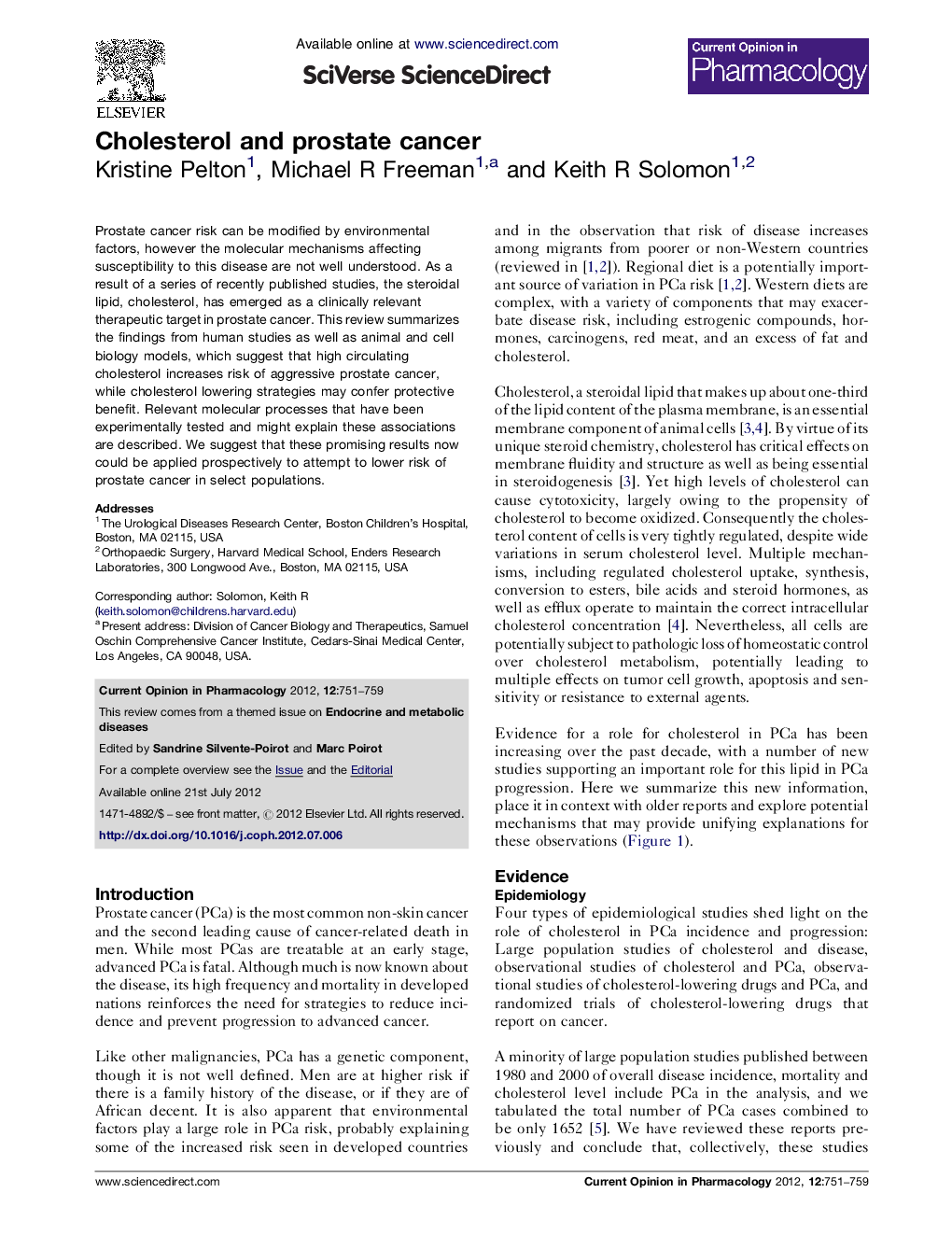| Article ID | Journal | Published Year | Pages | File Type |
|---|---|---|---|---|
| 5826409 | Current Opinion in Pharmacology | 2012 | 9 Pages |
Prostate cancer risk can be modified by environmental factors, however the molecular mechanisms affecting susceptibility to this disease are not well understood. As a result of a series of recently published studies, the steroidal lipid, cholesterol, has emerged as a clinically relevant therapeutic target in prostate cancer. This review summarizes the findings from human studies as well as animal and cell biology models, which suggest that high circulating cholesterol increases risk of aggressive prostate cancer, while cholesterol lowering strategies may confer protective benefit. Relevant molecular processes that have been experimentally tested and might explain these associations are described. We suggest that these promising results now could be applied prospectively to attempt to lower risk of prostate cancer in select populations.
Graphical abstractDownload high-res image (118KB)Download full-size imageHighlights⺠Hypercholesterolemia increases the risk of aggressive prostate cancer. ⺠Cholesterol-lowering statin drugs reduce the risk of aggressive prostate cancer. ⺠Hypercholesterolemia may elicit multiple mechanisms that affect prostate cancer. ⺠Hypercholesterolemia may be a risk factor for developing castration-resistance.
